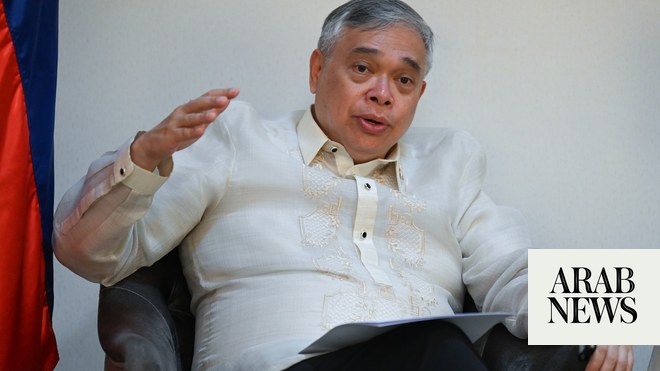
On March 10, the foreign ministers of the five permanent members (P5) of the UN Security Council issued a rare joint statement. In it, they congratulated themselves, and the world, on the successful implementation 50 years ago of the first global arms-control treaty, the Nuclear Non-Proliferation Treaty (NPT), which came into force on March 5, 1970.
The fact that the US, Russia, China, the UK and France could agree on any communique is in itself a rarity, especially in the past decade during which growing tensions have crept into their relationships with each other. The US, France and the UK are aligned on one side of most issues, while Russia and China increasingly find themselves in agreement on the other side of international disputes.
Yet the 50th anniversary of the NPT hardly calls for celebration. Other than the fact that it was the first global arms-restriction treaty, there is nothing remarkable or even remotely successful about it.
It is one of the most discriminatory multilateral agreements. The P5 countries were the only nuclear-armed states at the time the agreement was signed — members of an exclusive club that would not permit any other nation to develop nuclear weapons and join them.
The basis for this exclusivity was extremely fallacious and arbitrary: The P5 declared themselves to be “responsible” world powers but said that any other nation that developed nuclear weapons could not be trusted to deal with them in a responsible manner. They also decided that sanctions would be imposed on any other country that attempted to develop nuclear capability.
They have been blind to the hypocrisy of the entire agreement, which has not prevented the P5 from conducting additional nuclear tests as it suits them, or developing new nuclear-weapon capacity and delivery vehicles.
Even in terms of the main stated objective of the NPT — to prevent proliferation — the P5 failed in their efforts. Nuclear weapons have spread around the world in the past five decades. India, Pakistan, North Korea and Israel are believed to have nuclear weapons, with the first three nations conducting frequent tests to showcase their capabilities.
In addition, several other countries are believed to be actively working to acquire nuclear capacity.
Other than the fact that it was the first global arms-restriction treaty, there is nothing remarkable or even remotely successful about it.
Ranvir Nayar
The P5, who took it upon themselves to police their treaty and ensure nuclear weapons did not spread beyond their club, must shoulder much of the blame for the fact that they have.
The proliferation of nuclear bombs beyond the P5 has not been the only problem with the NPT. A bigger problem lies within the P5 itself, in particular the US, Russia and China. Unlike the UK and France, where nuclear-weapons technology has remained more or less at the same level for the past five decades, the other three countries have increased both the numbers and types of their weapons.
Right up until the disintegration of the Soviet Union and the collapse of communism in Eastern Europe in 1991, the US and USSR were engaged in a very public and high-profile nuclear-arms race. Each of the superpowers had enough weapons to destroy not only each other but, indeed, the entire world many times over, a concept known as “mutually assured destruction” or MAD.
It was only in the mid-1980s that the two nations started to negotiate some agreements aimed at curbing their nuclear capacities. A series of deals — such as the Intermediate-Range Nuclear Forces Treaty (INF) and the Strategic Arms Reduction Treaty (START) — were signed in the late 1980s and early 1990s by Soviet President Mikhail Gorbachev and US Presidents Ronald Reagan and George H.W. Bush. As a result, the number of nuclear weapons in the world began to fall from a peak of about 90,000 to the current 15,000 or so.
In the past few years, there seems to have been a resurgence of the arms race between the former Cold War rivals. This took a more serious turn when US President Donald Trump refused to renew the INF treaty, accusing Russia of cheating and expressing concern about the rapid growth in Chinese nuclear capacity.
Since the beginning of the millennium, China has joined the US and Russia in beefing up its nuclear arsenal and capacities, which has led to a new, trilateral arms race. China has not only mastered all types of nuclear weapons, including hydrogen and plutonium bombs, it has also developed a vast range of delivery systems that seem to worry the US president and his military advisers.
Several nations have long protested against the arbitrary nature of the NPT. Five of them refused to sign the deal, even though 195 others signed on.
As the world marks five decades of the NPT, therefore, it is time to pause and review the weaknesses of this biased and ineffective treaty. It might be a good idea for the P5 to start cutting down on their own arsenals and move toward a world entirely free of nuclear weapons. Only then will proliferation truly have ended.
Ranvir S. Nayar is the editor of Media India Group, a global platform, based in Europe and India, that encompasses publishing, communication and consultation services.
Disclaimer: Views expressed by writers in this section are their own and do not necessarily reflect Arab News" point-of-view











